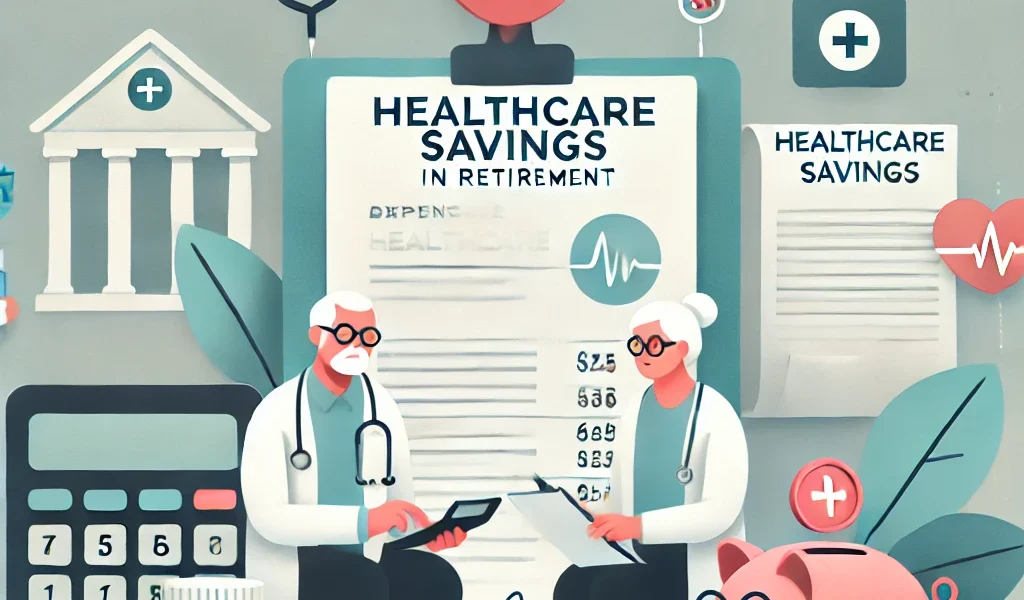Introduction
Planning for retirement isn’t just about saving money—it’s also about preparing for healthcare costs. Medical expenses can be one of the biggest financial burdens for retirees, and failing to plan for them can significantly impact your savings.
In this guide, we’ll cover:
✔ The importance of healthcare planning in retirement
✔ Types of medical expenses you may face
✔ How to save and invest for future healthcare costs
✔ Tips for reducing out-of-pocket expenses
By planning ahead, you can ensure a stress-free and financially secure retirement without unexpected medical costs draining your savings.
Why Healthcare Planning Is Essential for Retirement
Many retirees underestimate how much they will spend on medical care. According to studies, an average retired couple may need over $315,000 just to cover healthcare expenses.
Key Reasons Why Healthcare Planning Is Important:
🔹 Longer Life Expectancy – People are living longer, which means more years of medical expenses.
🔹 Rising Healthcare Costs – Medical expenses increase every year due to inflation.
🔹 Unexpected Medical Issues – Chronic illnesses and sudden health issues can lead to high costs.
🔹 Limited Medicare Coverage – Medicare doesn’t cover all expenses, such as dental, vision, and long-term care.
To ensure your financial security, you need a solid strategy to manage these expenses.
Types of Healthcare Expenses in Retirement
When planning for retirement, it’s essential to understand the different types of healthcare costs you may face:
1️⃣ Routine Medical Costs
✔ Regular check-ups, doctor visits, and prescription medications.
2️⃣ Long-Term Care Costs
✔ Assisted living, home care services, and nursing homes.
3️⃣ Medicare Premiums & Out-of-Pocket Costs
✔ Medicare covers some expenses, but you may still have copayments, deductibles, and premiums.
4️⃣ Dental, Vision, and Hearing Care
✔ Medicare does not cover most dental, vision, and hearing treatments, so these must be paid separately.
5️⃣ Unexpected Medical Emergencies
✔ Hospital stays, surgeries, and sudden illnesses can lead to high medical bills.
Now that we know what to expect, let’s explore how to prepare financially.
How to Plan for Healthcare Costs in Retirement
1. Start Saving Early
✔ Use a Health Savings Account (HSA) – If you’re still working, contribute to an HSA to save tax-free money for medical expenses.
✔ Set Aside a Healthcare Fund – Create a dedicated savings account for future medical costs.
💡 Tip: HSAs allow tax-free contributions, tax-free growth, and tax-free withdrawals for medical expenses.
2. Understand Medicare & Supplemental Plans
Medicare is an essential part of retirement healthcare planning, but it doesn’t cover everything. Here’s what you need to know:
✔ Medicare Part A – Covers hospital stays but has deductibles.
✔ Medicare Part B – Covers doctor visits but has monthly premiums.
✔ Medicare Part D – Covers prescription drugs but may have copays.
✔ Medigap (Supplemental Insurance) – Covers out-of-pocket costs Medicare doesn’t cover.
✔ Medicare Advantage Plans – Alternative to traditional Medicare, often including dental, vision, and hearing coverage.
💡 Tip: Enroll in Medicare at age 65 to avoid late penalties.
3. Consider Long-Term Care Insurance
Long-term care (LTC) costs can be extremely high, with nursing home expenses averaging $100,000 per year. To protect your savings:
✔ Buy long-term care insurance early to secure lower premiums.
✔ Look for hybrid policies that combine life insurance with LTC benefits.
✔ Consider self-funding if you have substantial retirement savings.
💡 Tip: The best time to purchase long-term care insurance is in your 50s or early 60s before premiums become too expensive.
4. Diversify Retirement Income Sources
✔ Use a mix of 401(k), IRA, and investment income to fund healthcare costs.
✔ Consider annuities for guaranteed lifetime income.
✔ Delay Social Security benefits to maximize monthly payments.
💡 Tip: Roth IRAs are a great option because withdrawals are tax-free in retirement.
5. Reduce Healthcare Costs in Retirement
There are ways to cut down your out-of-pocket medical expenses:
✔ Compare Medicare Plans – Shop for the best coverage at the lowest cost.
✔ Use Generic Drugs – Save money on prescriptions by choosing generics.
✔ Negotiate Medical Bills – Always ask for discounts or payment plans.
✔ Stay Healthy – Preventive care can help reduce future medical expenses.
💡 Tip: Exercise, eat well, and avoid smoking—staying healthy is the best way to reduce medical costs!
How Much Should You Save for Healthcare in Retirement?
It depends on various factors such as:
✔ Your current health and family history.
✔ Your retirement age (early retirees need more savings).
✔ Your location (healthcare costs vary by state/country).
General Savings Guidelines:
💰 If retiring at 65, aim for $300,000+ in medical savings.
💰 If retiring at 50, save at least $500,000+ for healthcare.
💰 If you have an HSA, maximize contributions to cover tax-free expenses.
💡 Tip: Use a retirement healthcare cost calculator to estimate your specific needs.
Final Thoughts: Secure Your Future with Smart Healthcare Planning
Planning for healthcare in retirement is just as important as saving for daily expenses. Medical costs can quickly drain savings, but with proper planning, you can protect your financial future.
🔹 Start saving early & maximize your HSA.
🔹 Understand Medicare & get supplemental coverage.
🔹 Invest in long-term care insurance before it’s too late.
🔹 Stay healthy to reduce future medical costs.




